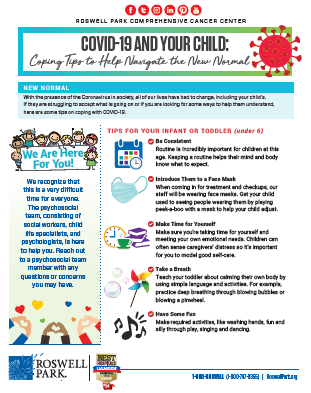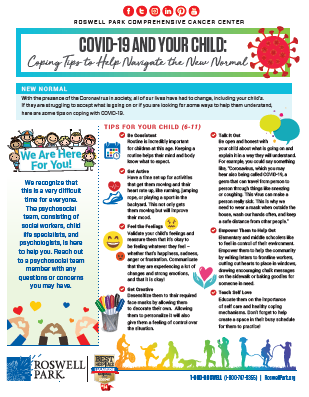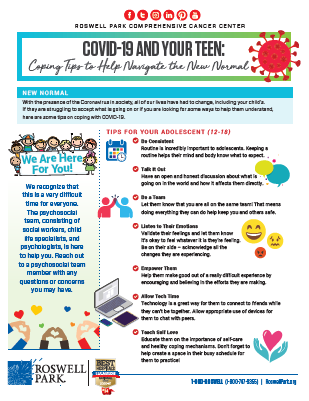With the presence of the Coronavirus in society, all of our lives have had to change, including your child’s. If they are struggling to accept what is going on, or if you are looking for some ways to help them understand, here are some tips on coping with COVID-19.
Be consistent
Routine is incredibly important to children at this age. Keeping a routine helps their mind and body know what to expect.
Introduce them to a face mask
When coming in for treatment and checkups, our staff will be wearing face masks. Get your child used to seeing people wearing them by playing peek-a-boo with a mask to help your child adjust.
Make time for yourself
Children are like sponges and can become anxious when they feel their caregiver’s anxiety. Make sure you’re taking time for yourself and meeting your own emotional needs.
Take a breathe
Teach your toddler about calming their own body by using simple language and activities. For example, practice deep breathing through blowing bubbles or blowing a pinwheel.
Have some fun
Make required activities, like washing hands, fun and silly through play, singing and dancing.
Additional tips for the whole family

- Practice grounding techniques (There are many different ones. A quick google search will help you discover what may work best for you.)
- Meet your body’s physical needs — eat, drink water, get an adequate amount of sleep, etc.
- Take a bath or shower
- Engage in physical exercise
- Listen to music
- Connect with others who are experiencing similar life situations
- Spend time with a pet
- Spend time with a loved one who helps you feel calm
- Practice giving yourself grace
- Identify and validate your own emotions
- Spend time outdoors in nature
- Create a calming space in your home to go to take a break and regroup
- Engage in a hobby or activity you love
- Spend time playing with your children and family members
- Engage in activities that give back and help others
- Identify a professional who can help if needed
Be consistent
Routine is incredibly important to children this age. Keeping a routine helps their mind and body know what to expect.
Get active
Have a time set up for activities that get them moving and their heart rate up, like running, jumping rope, or playing a sport in the backyard. This will help the child burn off any nervous energy that has built up.
Feel the feelings
Validate your child’s feelings and reassure them that it’s okay to be feeling whatever they feel – whether that’s happiness, sadness, anger or frustration. Communicate that they are experiencing a lot of changes and strong emotions, and that it is okay!

Get creative
Desensitize them to their required face masks by allowing them to decorate their own. Allowing them to personalize it will also give them a feeling of control over the situation.
Talk it out
Be open and honest with your child about what is going on and explain it in a way they will understand. For example, you could say something like, “Coronavirus, which you may hear also being called COVID-19, is a virus that lives on germs that can travel from person to person through things like sneezing or coughing. This virus can make a person really sick. This is why we need to wear a mask when outside the house, wash our hands often, and keep a safe distance from other people.”
Empower them to help out
Elementary and middle schoolers like to feel in control of their environment. Empower them to help the community by writing letters to front-line workers, cutting out hearts to place in windows, drawing encouraging chalk messages on the sidewalk or baking goodies for someone in need.
Teach self love
Educate them on the importance of self-care and healthy coping mechanisms. Don’t forget to help create a space in their busy schedule for them to practice!
Be consistent
Routine is incredible important to children this age. Keeping a routine helps their mind and body know what to expect.
Talk it out
Have an open and honest discussion about what is going on in the world and how it affects them directly.
Be a team
Let them know that you are all on the same team! That means doing everything they can do help keep you and others safe.
Listen to their emotions
Validate their feelings and let them know it’s okay to feel whatever it is they’re feeling. Be on their side – acknowledge all the changes they are experiencing.
Empower them
Help them make good out of a really difficult decision by encouraging and believing in the efforts they are making.

Allow tech time
Technology is a great way for them to connect to friends while they can’t be together. Allow appropriate use of devices for them to chat with peers.
Teach self love
Educate them on the importance of self-care and healthy coping mechanisms. Don’t forget to help create a space in their busy schedule for them to practice!
Additional self-care advice
- Create a calming space in your home to go to take a break and regroup
- Engage in physical exercise
- Listen to music
- Connect with others who are experiencing similar life situations
- Practice deep breathing
- Spend time with a pet
- Engage in much-loved hobby or activity
- Identify a professional who can help if needed
We are here for you!
We recognize that this is a very difficult time for everyone. The support team, consisting of social workers, child life specialists, and psychologists are here to help you. Reach out at 716-845-2300 ext. 6282 with any questions or concerns you may have.